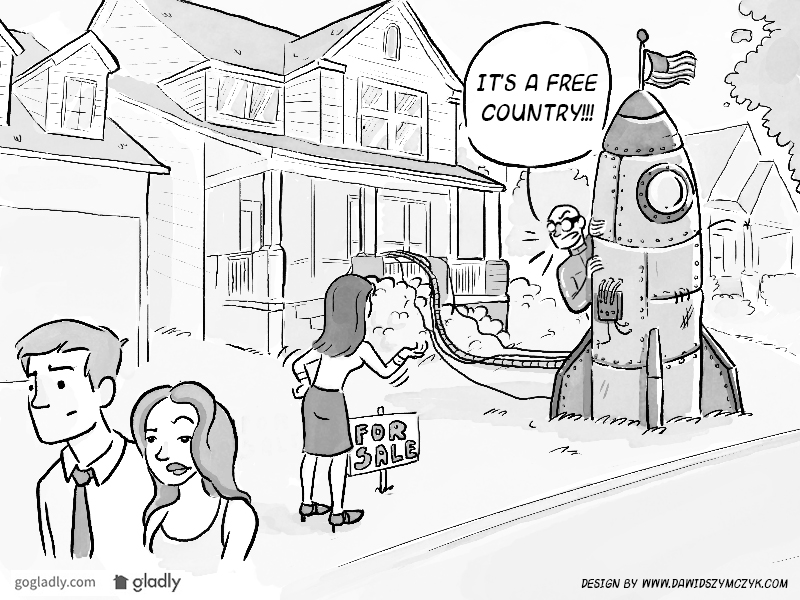HOAs create a more beautiful, safer, and all-around better place to live. This is reflected in higher property values. At least that’s what we’ve been told… and we happily repeat it.
But is it really true?
The Internet Says, No
If you ask the internet the answer is a resounding “no”! (Entertaining examples here, here, and here just for a few.)
Science Says, Yes!
But according to a study by George Mason University, HOAs do increase property values. On average, a home in a community association sells between 5% and 6% higher than an equivalent home in an equivalent non-HOA neighborhood.
Home Buyers Value HOAs
Why the higher price? Simply because home buyers place a higher value on homes in HOAs than they do on homes that are not part of an HOA. In other words, the market is voting for the promise of community associations with real dollars.
Proclaim the Truth
Of course this doesn’t mean that there aren’t very real problems in many HOAs. There certainly are. But at least we can continue to confidently proclaim that HOAs do increase property values. I think this is good news!
- Two Common Issues With Board Members - November 19, 2019
- How to Change the World – One HOA Election at a Time - July 13, 2016
- Solving the Social Media Problem - April 20, 2016



 Help
Help
Given my current experience, given two equivalent home, one in an HOA, one not in an HOA, I’d value the one not in the HOA more.
Hi Jake. Thanks for the comment.
I don’t doubt your example. Certainly it’s not impossible to find a home in an HOA that’s valued less than an equivalent home outside an HOA.
However, the data in this study focus on the average and don’t preclude the possibility of outliers.
Jake’s response is a subjective one, not an objective one. He did not claim the actual price of the home was higher outside the HOA, only that he would value it higher. This says nothing about the actual market price. The home he would be looking at may be priced lower than the HOA home, in which case, he gets it as a steal.
[…] the takeaways are that, in general, HOAs are good. Really good. On average they increase property values. All of them have issues, but so do non-HOA neighborhoods. The HOA haters aren’t all wrong, […]
Garbage studies are garbage: “we collected sales data from five zip
codes in the Washington, D.C., suburban area of Prince
William County, Va., from the years 2000–2004. ”
I’d like to see a modern nationwide study that includes time to sell.
Hi James. Thanks for the comment. What you’re saying is that we can’t claim that this study’s sample is representative of the rest of the country. I agree that it’s reasonable to question that assumption. I too would love to see a study that covers the entire country, but I’m guessing that wasn’t feasible at the time. (It probably is feasible today with databases like Zillow and Visible Equity.)
You’re correct, in that the George Mason Univ. study isn’t definitive but it’s far from “garbage”. The authors compare otherwise equivalent homes (sq. footage, bedrooms, bathrooms, etc) and found that homes in HOAs command a 5% higher price. If the authors are worth anything, then they ran a multivariate regression to tease out the variables that account for the difference. Their conclusion is that in those 5 zip codes, living in an HOA accounts for a large percentage of the difference. That’s not definitive, but it’s interesting and worth noting, in my opinion.